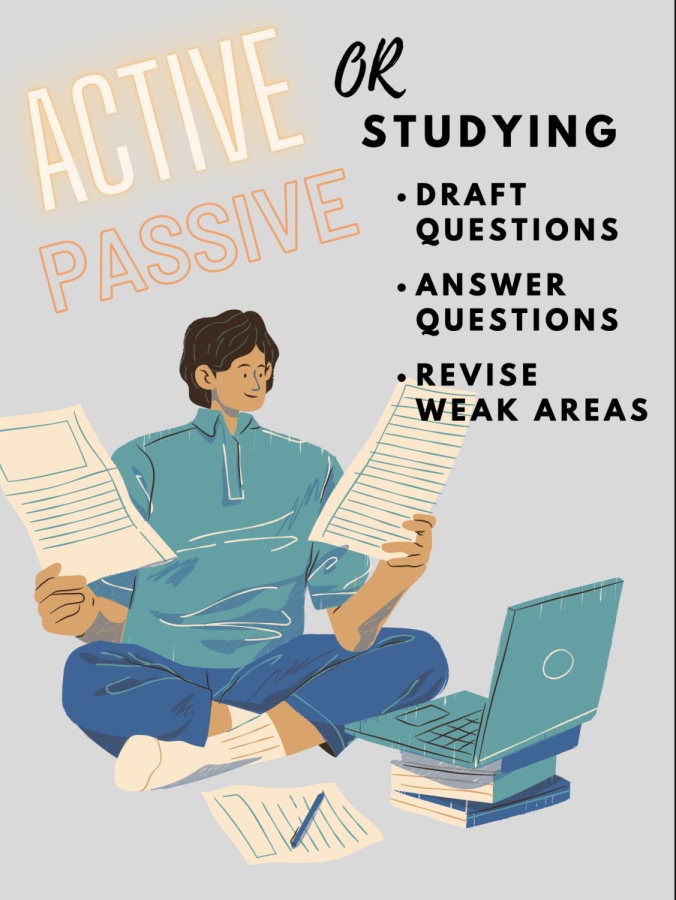What is active recall?
The process of active recall requires the brain to retrieve information, actively learning it instead of passively memorizing it.
Throughout high school, I have always struggled with studying, especially with content-heavy classes like history and vocabulary, as opposed to conceptual classes like math and biology. The difficulty was not particularly with the content but rather the pressure of learning extensive amounts of information. The lack revision techniques dissuaded me from setting up study times, studying, and even continuing my study practice. Studying can be the biggest obstacle when attempting to understand and learn anything, and it is a crucial habit if students wish to excel academically.
Usually, when I study for these content-based classes, I read my notes aloud until they are ingrained into my brain. Then I use what I have stored in my short-term memory to take my test and forget most of it right after – sounds familiar? I have observed many students fall into the trap of “passive studying,” resorting to simply summarizing and re-reading notes.
When really, this type of passive studying technique has been proven through copious research to be a tedious, time-consuming, and ineffective method, it does not promote long-term knowledge retention.
The lack of awareness over studying raises the question: which study method should students use for the best results?
The answer: Active recall, also known as active retrieval or practice testing, is proven scientifically to be the most effective high-yield learning technique. Instead of reading off notes to put information into the brain like the traditional approach, active recall is the exact opposite and compels students to retrieve information from their brains. The method may sound a little complicated, but it is a simple process when put into practice.
The active recall method requires students to construct test questions based on the topic and answer those questions repeatedly. This process requires the brain to recall the information, actively learning it instead of passively memorizing it. Using this method helps students retain the information in the long term and determine which areas they need more focus on.
So, how can we incorporate active recall?
The next time you have an important test, gather your resources; it could be your APUSH textbook, your biology slides, your Spanish notes– whatever you use to study and come up with questions that cover most of the topics. Then try to answer all the questions without looking at your notes, and revisit the questions you have gotten wrong.
It is not to say that there are no downsides to this method of studying. Active retrieval requires far more effort than passive learning. It can be tempting to look at the notes when they are right there and discouraging when students answer the questions incorrectly. It takes much more time to create questions from your notes rather than just reading off of them.
Next time, when you haven’t procrastinated studying for a test, give active recall a try and see if the extra effort pays off.

